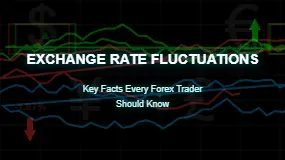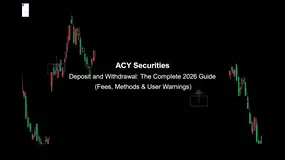WikiFX Trending Topics Analyst Initiative
Share Your Expertise on What’s Moving the Market.
简体中文
繁體中文
English
Pусский
日本語
ภาษาไทย
Tiếng Việt
Bahasa Indonesia
Español
हिन्दी
Filippiiniläinen
Français
Deutsch
Português
Türkçe
한국어
العربية
Abstract:As of the most recent calculation on October 14, 2022, the black market exchange rate for the naira was N734 to $1, and it was steadily falling. The naira was permitted to float against the US dollar and other major currencies by the Central Bank of Nigeria (CBN). It would be fatal if a combat between a tortoise and an elephant were staged. Under its massive feet, the elephant will crush the tortoise, and those who orchestrated the initial altercation will take the fall.

As of the most recent calculation on October 14, 2022, the black market exchange rate for the naira was N734 to $1, and it was steadily falling. The naira was permitted to float against the US dollar and other major currencies by the Central Bank of Nigeria (CBN). It would be fatal if a combat between a tortoise and an elephant were staged. Under its massive feet, the elephant will crush the tortoise, and those who orchestrated the initial altercation will take the fall.
The naira is in shambles as a result of the CBN's decision from more than six years ago. What to do next is a conundrum for the government. A bush fire is simple to start, but extremely challenging to put out.
The naira is floating and even falling freely because there is no support from sound economic principles. There is concern that the naira could fall to N1000/$1 unless there is a significant turnaround. This anxiousness is undeniably present, and the fear is tangible. Nigerians are worried, especially given the worsening poverty brought on by the fall of the naira and the ensuing hyperinflation.
It is important to consider whether the naira's free fall crosses any red lines. What is the objective? Or is the float unrestricted? Has the CBN slipped into chaos? The naira could drop to unfathomable levels under the current conditions unless restrictions are created and properly monitored by the CBN.
The worst nightmare for economic strategists is the snowball effect of the floating naira exchange rate. The economy is in shambles, and everyday Nigerians are going through unspeakable hardship.
How did the nation arrive at this despicable situation? Did the economic managers foresee these unfavorable effects and still proceed with the naira flotation? Or did they fail to foresee the negative effects? If what is happening was not anticipated, it is likely that the economy has been pulled into a dark alley from which it would be extremely difficult to emerge, barring a dramatic turn around under a different administration that would encourage productivity instead of consumerism.
That's the way to proceed. Without a solid base of exports and production, the naira is doomed. There is no way the CBN can accomplish it.
My biggest concern is the closure of businesses and the subsequent job losses at a time when millions of recent graduates are unemployed and idle. There isn't any output. The worst economic downturn since the end of the Nigerian Civil War has been brought on by the naira's floating. Due to their incapacity to cope with the harsh economic reality, businesses are closing. I'll give a few examples to highlight the unpleasant scenario.
The aviation sector reports that at least 14 foreign airlines have stopped operating in Nigeria due to the country's high operational costs, limited customer demand, low profit margins, and challenging operating conditions. Among the carriers are Virgin Atlantic, Iberia, and United Airlines. Even the established British Airways had made a withdrawal threat. Due to low business in the midst of the forex crisis, the travel agencies that service the airlines are also closing.
Millions of cash made by the airlines have been locked in the nation due to the foreign exchange problem. Through the CBN, the Federal Government had established a fiscal policy that limited access to foreign currency and money transfers outside of the nation.
Airlines reportedly had $265 million in assets delayed in the country after the government abolished the unique exchange rate they used. These monies were reportedly repatriated at a new float rate, causing the airlines to lose millions of their hard-earned funds.
Additionally, the inflated foreign exchange rate has dramatically decreased the number of travellers by driving up travel costs. About 40,000 jobs could be lost as a result of the departure of the airlines and the related service providers, either directly or indirectly.
The situation is the same in the shipping sector. According to reports, over 3000 dock employees may lose their employment as a result of 20 shipping companies ceasing business in Nigeria as a result of unfavorable government regulations. Prior to this, it was also claimed that the Nigerian Ports Authority (NPA) intended to fire certain dock workers due to a lack of business.
The Manufacturers Association of Nigeria (MAN) also bemoaned the closure of 272 businesses in a short period of time as a result of the CBN's restriction on 41 goods. The products were removed from the official foreign exchange window, forcing the businesses that utilize them to purchase foreign currency on the black market.

Disclaimer:
The views in this article only represent the author's personal views, and do not constitute investment advice on this platform. This platform does not guarantee the accuracy, completeness and timeliness of the information in the article, and will not be liable for any loss caused by the use of or reliance on the information in the article.

Share Your Expertise on What’s Moving the Market.

In a forex market where fundamental and technical factors impact the currency pair prices, volatility is expected. If the price volatility acts against the speculation made by traders, it can result in significant losses for them. This is where a stop-loss order comes to their rescue. It is one of the vital investment risk management tools that traders can use to limit potential downside as markets get volatile. Read on as we share its definition and several strategies you should consider to remain calm even as markets go crazy.

The forex market is a happening place with currency pairs getting traded almost non-stop for five days a week. Some currencies become stronger, some become weaker, and some remain neutral or rangebound. If you talk about the Indian National Rupee (INR), it has dipped sharply against major currencies globally over the past year. The USD/INR was valued at around 85-86 in Feb 2025. As we stand in Feb 2026, the value has dipped to over 90. The dip or rise, whatever the case may be, impacts our daily lives. It determines the price of an overseas holiday and imported goods, while influencing foreign investors’ perception of a country. The foreign exchange rates change constantly, sometimes multiple times a day, amid breaking news in the economic and political spheres globally. In this article, we have uncovered details on exchange rate fluctuations and key facts that every trader should know regarding these. Read on!

Understanding how to add funds to your account and, more importantly, how to take them out is essential for safe trading. For any trader thinking about ACY Securities, making an ACY SECURITIES deposit is simple, but the ACY SECURITIES withdrawal process has many serious complaints and concerns. While ACY says it is an established, regulated broker, many users have complained specifically about withdrawal problems, creating a confusing and often contradictory picture. This guide provides a complete and critical analysis. We will first explain the official steps for deposits and withdrawals, including methods, fees, and stated timelines. We will then take a deep look at patterns found in over 180 real user complaints, examining the potential warning signs and risks. By combining official information with real-world user experiences and regulatory warnings, this article aims to give you the clarity needed to make an informed decision about the safety of your funds with ACY Securities.
